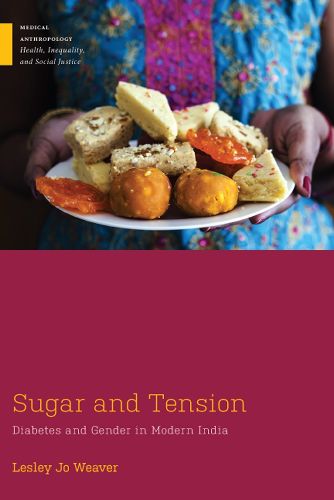Readings Newsletter
Become a Readings Member to make your shopping experience even easier.
Sign in or sign up for free!
You’re not far away from qualifying for FREE standard shipping within Australia
You’ve qualified for FREE standard shipping within Australia
The cart is loading…






Women in North India are socialized to care for others, so what do they do when they get a disease like diabetes that requires intensive self-care? In Sugar and Tension, Lesley Jo Weaver uses women’s experiences with diabetes in New Delhi as a lens to explore how gendered roles and expectations are taking shape in contemporary India. Weaver argues that although women’s domestic care of others may be at odds with the self-care mandates of biomedically-managed diabetes, these roles nevertheless do important cultural work that may buffer women’s mental and physical health by fostering social belonging. Weaver describes how women negotiate the many responsibilities in their lives when chronic disease is at stake. As women weigh their options, the choices they make raise questions about whose priorities should count in domestic, health, and family worlds. The varied experiences of women illustrate that there are many routes to living well or poorly with diabetes, and these are not always the ones canonized in biomedical models of diabetes management.
$9.00 standard shipping within Australia
FREE standard shipping within Australia for orders over $100.00
Express & International shipping calculated at checkout
Women in North India are socialized to care for others, so what do they do when they get a disease like diabetes that requires intensive self-care? In Sugar and Tension, Lesley Jo Weaver uses women’s experiences with diabetes in New Delhi as a lens to explore how gendered roles and expectations are taking shape in contemporary India. Weaver argues that although women’s domestic care of others may be at odds with the self-care mandates of biomedically-managed diabetes, these roles nevertheless do important cultural work that may buffer women’s mental and physical health by fostering social belonging. Weaver describes how women negotiate the many responsibilities in their lives when chronic disease is at stake. As women weigh their options, the choices they make raise questions about whose priorities should count in domestic, health, and family worlds. The varied experiences of women illustrate that there are many routes to living well or poorly with diabetes, and these are not always the ones canonized in biomedical models of diabetes management.